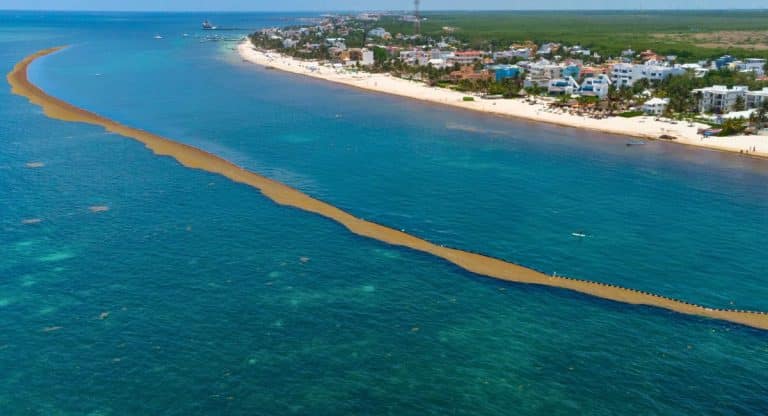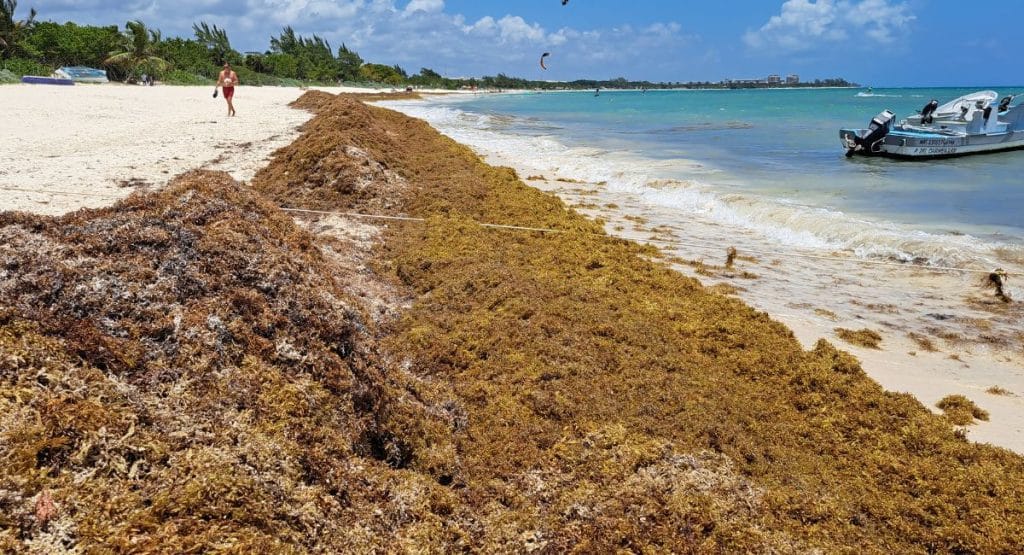Quintana Roo continues to implement strategies to collect sargassum in the sea and on shores, trying to keep beaches as pretty as possible.
Since the beginning of April, the Secretary of the Navy has been tasked to install 8,600 meters of ocean barriers to catch sargassum in Cancun, Tulum, Playa del Carmen, and other hotspots before it washes ashore, as informed by Navy Secretary Admiral Rafael Ojeda Durán.
This is only another tool that adds to the arsenal of technological equipment Quintana Roo State uses every day to help keep beaches suitable for local and international tourism.
“Regarding Operation Sargasso, it began on April 1. We have four sweepers, 22 small vessels, 11 sargaceras, a sargacero ocean vessel, eight compacting band machines, and barriers,” said Admiral Ojeda.
“Sargaceras” or “sargacero” vessels are ships equipped with special technology systems capable of suctioning sargassum and sometimes even packing it without negatively impacting marine life in the process.
Authorities have also announced the works won’t end with the placement of ocean barriers, but also with the cleaning, collection and transport of the material to Technological Institute Felipe Carrillo Puerto, as well as other institutions to transform it into biodiesel.
Since the day the sargassum season kicked off in 2024, over 950 tons have been collected. Playa del Carmen expects to be receiving around 300 tons of sargassum per day over the next few weeks, as satellite reports show there’s a mass moving towards the Yucatan peninsula.
Although the Navy works hard to collect as much sargassum as they possibly can, the reality is that visitors will find beaches covered with it from April to August.
That’s why it’s so important to keep yourself updated about the changing conditions of beaches because they are not entirely clean or dirty every day. It depends on multiple factors.
The bright side is that this year has the potential to see less sargassum due to favorable weather conditions in the Atlantic Ocean.
Join our Mexico sargassum monitoring FB group to receive and share information about the sargassum situation across the Mexican Caribbean.


